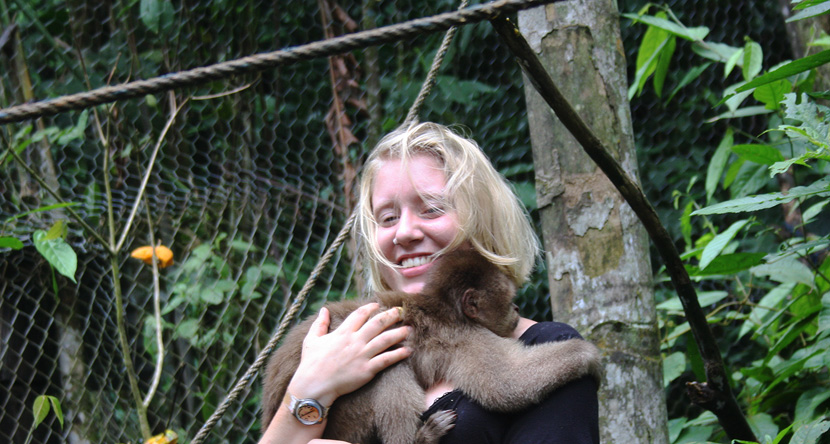Ecuador
Realm of Biodiversity
Ecuador owes its name to the equator that runs straight through the country. It is one of the smaller countries in South America, with an area of only 260,000 km², about three quarters of the area of Germany.
Ecuador borders Peru in the southeast, Colombia in the northeast, and the entire west side is naturally limited by the Pacific Ocean. A total of about 17 million people live in the small and pretty country, 2 million of them in the capital Quito. Visitors to the Ecuadorian capital should take a deep breath as it is located at 2,800 meters above sea level. The country's largest city and economically more important than Quito, is the coastal city of Guayaquil with a population of around 3.3 million.
Even though Ecuador cannot compete with its neighbors in terms of size, it can still be proud of breath-taking landscapes, lush vegetation, an eventful history and interesting customs and cultures. Ecuador's climate is very diverse. On the one hand, it is characterized by strong regional temperature differences and rainfall due to different altitudes (0 to over 6000 m). On the other hand, the climate is influenced by the cold Humboldt Current, which finds its way from the waters of the Antarctic northwards. However, due to the proximity of the equator, the temperature is relatively consistent over the year.
Most of the Ecuadorians are descendants from various indigenous people or are mestizos. Unlike in other countries in the region, almost only Spaniards immigrated from Europe to Ecuador in earlier centuries. There is also a considerable percentage of Afro-Ecuadorians. The people of Ecuador are generally very open, hospitable and friendly. You will undoubtedly feel very comfortable in their company.
Visitors are impressed by the different landscapes, cultural particularities, traditional festivals, ceremonies and the uniqueness of the fauna. In addition, the colonial center of the capital, Quito, was the first city to be declared a UNESCO World Heritage Site in the 1970s, and the historic city center was declared the best preserved in all Latin America. Without a doubt, the flagship of Ecuador is its biodiversity, it is considered one of the countries with the highest biodiversity in the world. The country is home to thousands of different animals and plant species, which are easy to observe. The famous Galapagos Islands also belong to the territory of Ecuador. They are home to the giant tortoise and are the place where Charles Darwin first developed his theory of evolution.
As you can see, nature lovers as well as culture fans get their money's worth in Ecuador and tourism has become an important industry in recent years.












